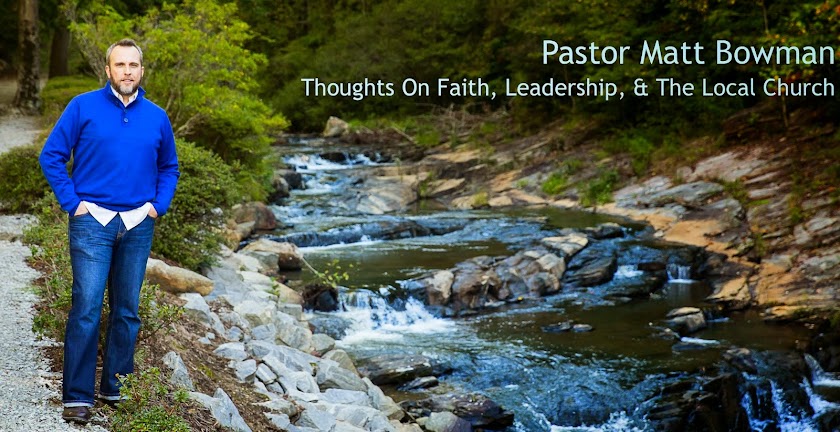Convenience: Americans love it. In fact, much of our lives are built around the pursuit of convenience. Now, there's nothing wrong with convenience; some conveniences make life a lot easier & less stressful. However, most of us have taken our desire for convenience to an unhealthy level. In fact, many of us have crossed over from having an appreciation for the conveniences in life to worshipping ourselves by feeding our desires for comfort & convenience. This is dangerous enough on its own, but when this infiltrates our faith, it becomes deadly to our effectiveness as followers of Jesus. After all, if we love convenience, comfort, & self that much, it will be really hard for us to radically, boldly love Jesus.
When we look at the early church in Acts we see them living boldly, praying for even more boldness, & then living with an even greater boldness. However, that greater boldness wasn't without its consequences. At first, they just spent the night in jail & were threatened, but as their boldness grew so did the pressure, the tension, & yes, even the potential of suffering. In fact, at the end of Acts 5 the disciples learned that the Sanhedrin's threats were not idle threats. The Sanhedrin had them viciously flogged for preaching the name of Jesus. So how did the disciples respond when all of a sudden they not only were a little inconvenienced by their faith but were outright suffering for it? They rejoiced; they celebrated that they had been counted as worthy. However, the suffering didn't end there. In Acts 6-8 we're introduced to an early church leader named Stephen. He was a bold, Spirit filled disciple, & it got him in trouble. In these chapters we see Steven arrested, falsely accused, & murdered for his bold faith in Jesus. In fact, this episode leads to an even greater persecution that was unleashed on the early church. However, look at what happens in Acts 8:1 & 8:4 as the persecution is unleashed.
"On that day a great persecution broke out against the church in Jerusalem and all except the apostles were scattered throughout Judea & Samaria."
Acts 8:1
"Those who had been scattered preached the word wherever they went." Acts 8:4
Notice two things: First, the persecution forced believers out of Jerusalem & into the regions of Judea & Samaria. Now think back to Acts 1:8. Jesus said that His disciples would be "witnesses in Jerusalem, Judea, Samaria, & to the ends of the earth" So Jesus' words are being fulfilled, but perhaps in an unexpected way: suffering. Secondly, notice who went into the regions of Judea & Samaria. It wasn't Peter. It wasn't John. It wasn't any of the big-shot leaders that we would expect. Those guys stayed in Jerusalem. The people who scattered were "regular people". It was people like you & me who broke the Gospel out of Jerusalem & advanced the Gospel into the surrounding world. This supports the image of the church being the Body of Christ where everyone plays a part. Everyone has a place in the church where they serve to help advance the Gospel & make disciples. However, there's an important truth we all must embrace to join with those brothers & sisters who have gone before us.
"In Advancing The Movement Of Jesus,
We Must Be Willing To Pay The Price To Play Our Part."
You have a place in God's Kingdom. You have a place where your ministry, your witness, your boldness is vital to advancing the Gospel & making disciples to the ends of the earth. The question is "Are you willing to pay the price to play that part?" Boldly living for Christ invites opposition & yes, even the possibility of suffering. Following Jesus will be inconvenient. Following Jesus will cost us something. Are we willing to pay that price. As you wrestle with this & seek to boldly live for Christ ask yourself this question:
"If it depended on my boldness of faith, would the Gospel ever break out of my city?"
Jesus promised that the Gospel would advance, but often it advances when we embrace the inconvenience & even the possibility that following Him could lead us to suffer for Him. However, when people outside the church see Christ followers boldly follow Christ in the face of real sacrifice, it gets their attention. Will we pay the price to play our part in advancing this movement Jesus set in motion?
























